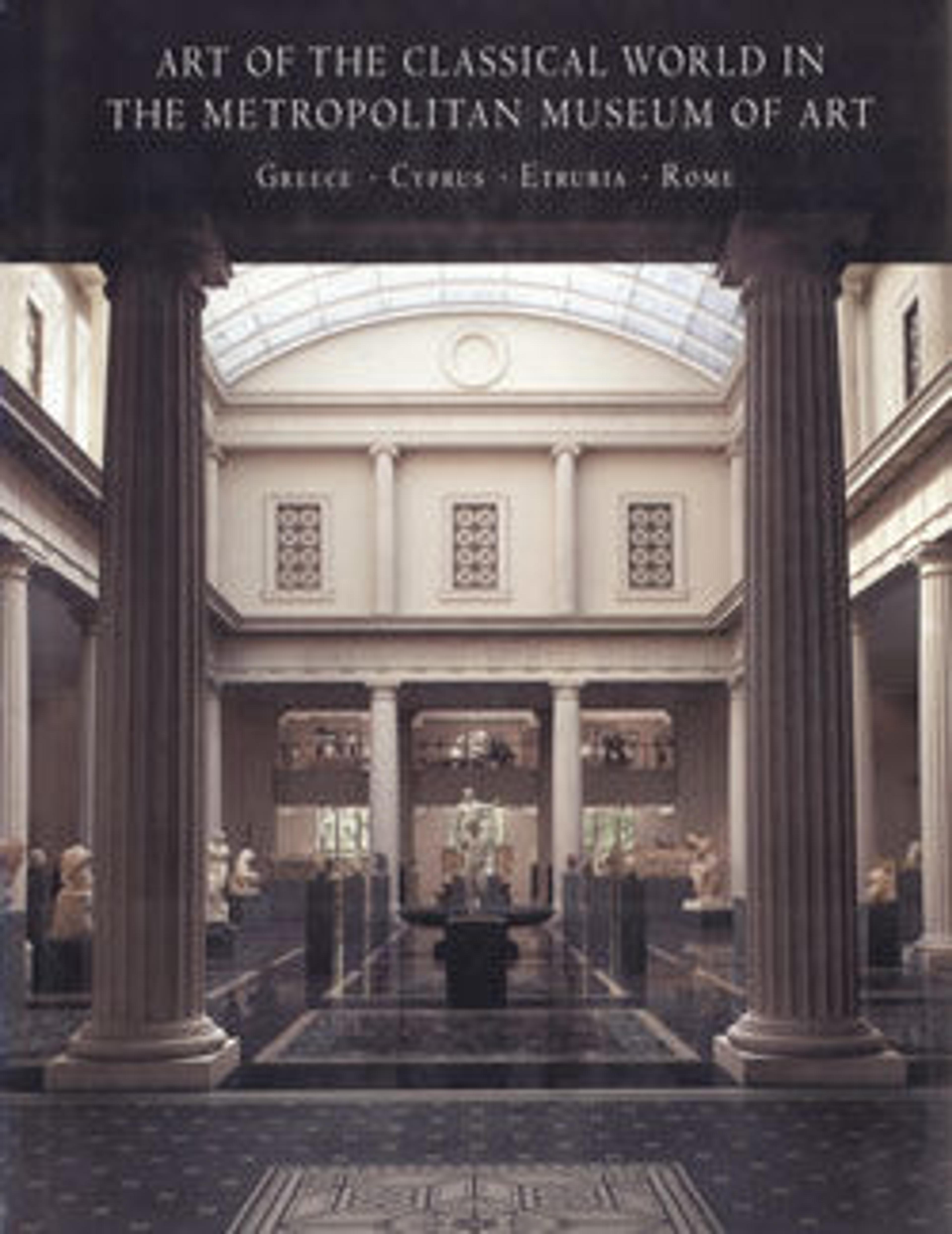Two fragments of a terracotta skyphos (deep drinking cup)
The punishment of Marsyas
Incomplete though it is, this beautiful work illustrates the South Italian predilection for large vases and the ample surface they provide for decoration. The goddess Athena invented the double flutes but rejected them because her face was disfigured when she played them. The satyr Marsyas mastered the instrument and in time challenged the god Apollo to a contest. Marsyas lost and was flayed for his presumption. On one side of the skyphos, Artemis and Leto, sister and mother of Apollo, face the satyr who leans on a pillar inscribed with his name and holds a large knife. The other side preserves much of Athena, with her martial attributes, seated pensively on a rock.
Incomplete though it is, this beautiful work illustrates the South Italian predilection for large vases and the ample surface they provide for decoration. The goddess Athena invented the double flutes but rejected them because her face was disfigured when she played them. The satyr Marsyas mastered the instrument and in time challenged the god Apollo to a contest. Marsyas lost and was flayed for his presumption. On one side of the skyphos, Artemis and Leto, sister and mother of Apollo, face the satyr who leans on a pillar inscribed with his name and holds a large knife. The other side preserves much of Athena, with her martial attributes, seated pensively on a rock.
Artwork Details
- Title: Two fragments of a terracotta skyphos (deep drinking cup)
- Artist: Attributed to the Palermo Painter
- Period: Classical
- Date: ca. 420–400 BCE
- Culture: Greek, South Italian, Lucanian
- Medium: Terracotta; red-figure
- Dimensions: H. 11 1/2 in. (29.2 cm)
diameter 16 in. (40.6 cm) - Classification: Vases
- Credit Line: Rogers Fund, 1912
- Object Number: 12.235.4
- Curatorial Department: Greek and Roman Art
More Artwork
Research Resources
The Met provides unparalleled resources for research and welcomes an international community of students and scholars. The Met's Open Access API is where creators and researchers can connect to the The Met collection. Open Access data and public domain images are available for unrestricted commercial and noncommercial use without permission or fee.
To request images under copyright and other restrictions, please use this Image Request form.
Feedback
We continue to research and examine historical and cultural context for objects in The Met collection. If you have comments or questions about this object record, please contact us using the form below. The Museum looks forward to receiving your comments.
